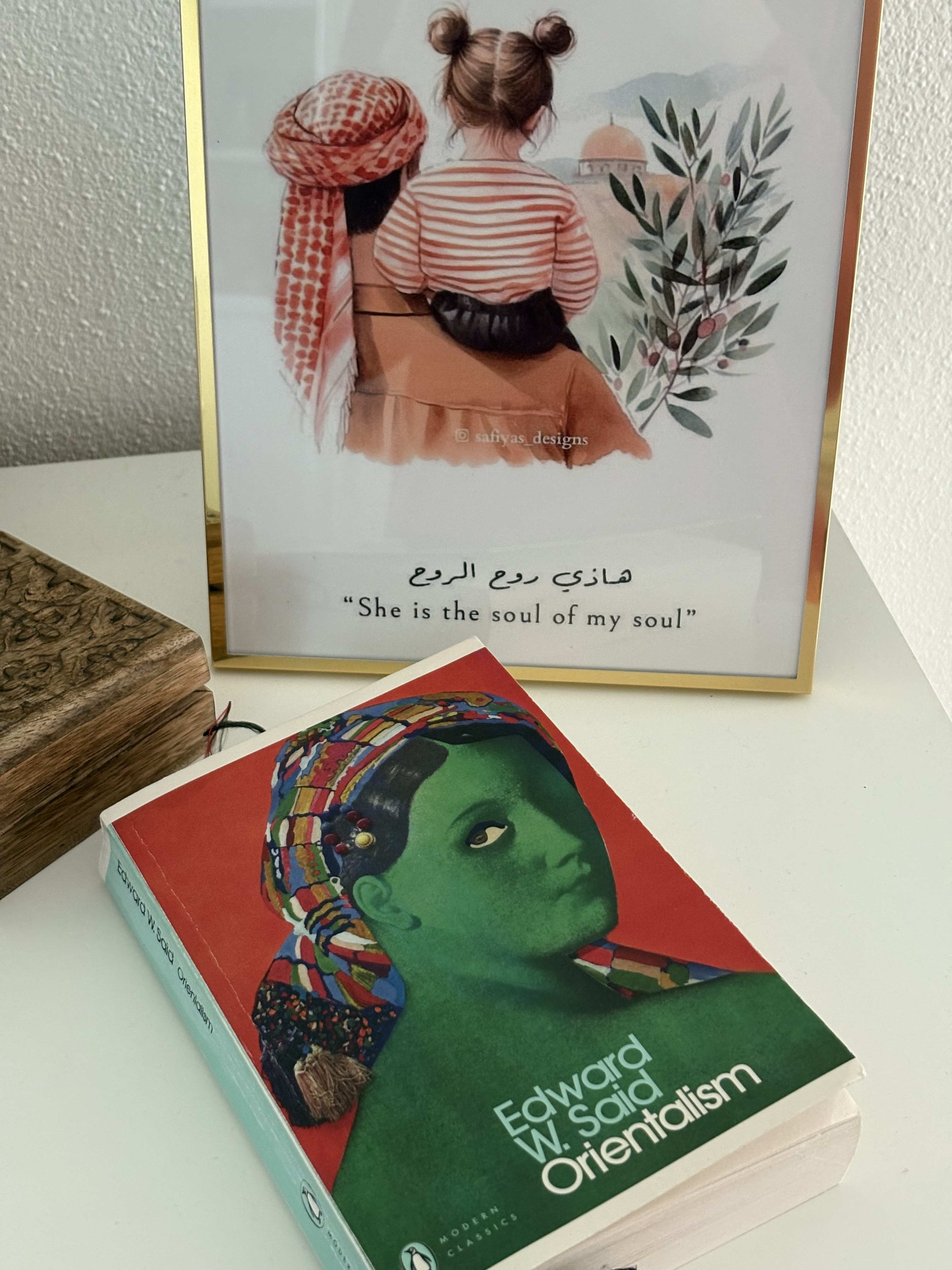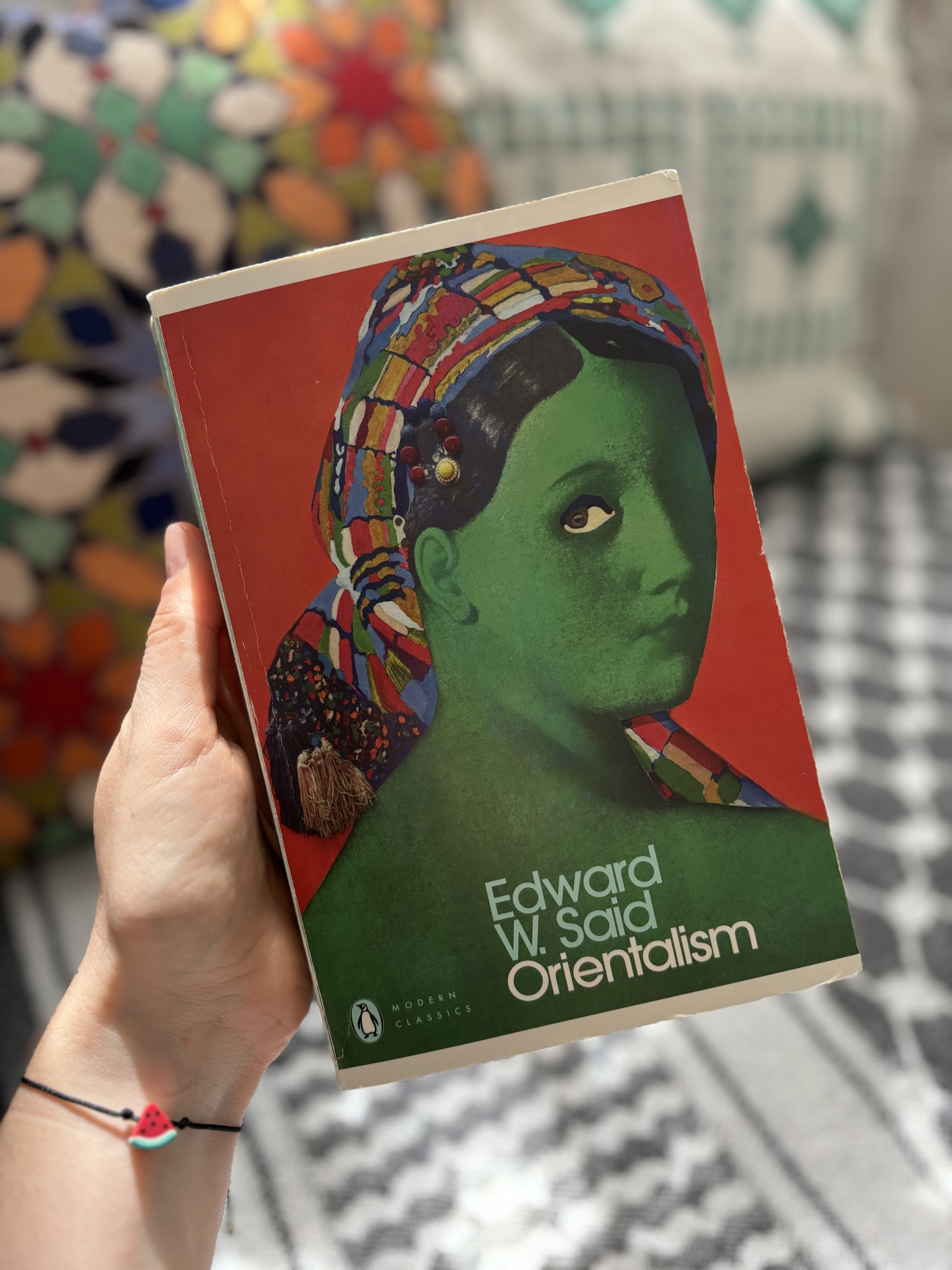Orientalism: from Scholarship to Supremacy
I never truly realized the extent of the prejudices and misconceptions about Islam in the West until I moved to Germany. As a Muslim, a European, and a woman, I found myself confronted with assumptions I had never anticipated: how a Muslim should look, what level of education we are expected to have, and—inevitably—the persistent, often one-dimensional conversation around the role of women in Islam.
This experience made me more observant of my surroundings and more critical of the media I consumed. I began to notice patterns—casual comments, headlines, public discourse—that all seemed to echo the same distorted lens. There was a system behind it, I realized. And I wanted to understand where it came from.
That’s when I came across Orientalism by Edward Said. The first time I picked it up, I struggled, especially as someone coming from an academic background unrelated to the humanities. But something in it called to me. I returned to it again—this time with the support of our reading circle—and slowly, I was finally able to finish the book and begin to unpack the roots of this long-standing discourse.

Edward Said’s Orientalism is a groundbreaking work that explores how the West has historically studied, represented, and dominated the “Orient”—primarily the Middle East, North Africa, and Asia. First published in 1978, the book dismantles the notion that Western knowledge about the East was ever neutral or purely academic. Instead, Said argues that “Orientalism” is a deeply political discourse, constructed to uphold colonial power and cultural superiority.
At the heart of Orientalism is the claim that Western scholars, artists, and policymakers developed a framework that defined the East as exotic, irrational, backward, and in need of Western intervention—both culturally and politically. This portrayal functioned as a justification for colonial conquest and control. The Orient, Said writes, was “a European invention,” shaped more by Western desires than by any genuine engagement with Eastern realities. One of the book’s strongest contributions is its demonstration of how Orientalism was deeply intertwined with colonialism. European empires like Britain and France produced knowledge about the Orient in tandem with their colonial expansion, using scholarship to legitimize political dominance.
Said also devotes significant attention to how Islam is treated within Orientalist discourse. He shows that Islam has long been a particular target of misrepresentation—rarely studied on its own terms, but instead interpreted through Christian frameworks and often depicted as disconnected from modernity and rationality.

Edward Said left behind a legacy that remains deeply relevant today, especially in ongoing discussions about Islamophobia, media bias, postcolonial power dynamics, and the colonial project in Palestine. The book invites us to question how knowledge is produced, who gets to speak for others, and how power operates through seemingly neutral disciplines like literature and academia. It helped me see how power, knowledge, and representation are entangled—and how crucial it is to challenge the narratives that claim to speak for us, without us.
For anyone seeking to understand the ideological roots of Western attitudes toward the Muslim world—and how those attitudes shaped imperial policy—Orientalism is essential reading.